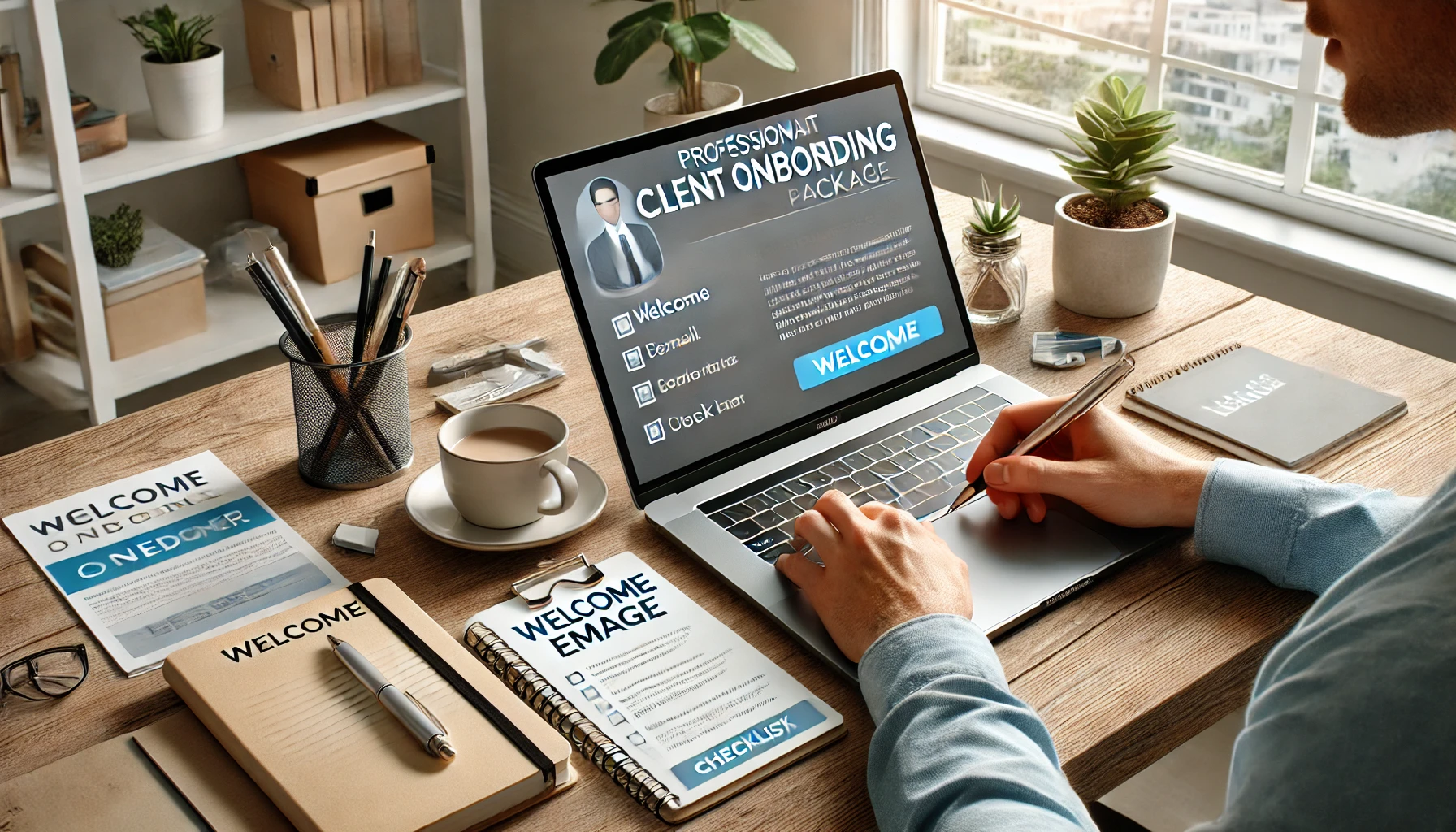Clients don’t just remember what you did—they remember how you made them feel. That’s why delivering an amazing client experience can be the key to building loyalty, getting referrals, and standing out in a competitive freelance market.
In this guide, you’ll learn how to go beyond just “doing the work” and create a seamless, professional, and memorable experience from start to finish.
Why Client Experience Matters
- Builds trust and confidence
- Encourages repeat business
- Leads to referrals and testimonials
- Justifies higher rates
- Turns your service into a brand
When clients feel supported, they’re more likely to recommend you—and return.
Step 1: Start With a Smooth Onboarding Process
The first impression sets the tone for everything.
Include in your onboarding:
- A welcome email or PDF
- Clear outline of the next steps
- Timeline for the project
- Access to files or a shared folder (Google Drive, Notion, Dropbox)
- Signed contract and paid invoice
Use tools like Dubsado, Bonsai, or Notion templates to automate this.
Step 2: Set Clear Expectations
Avoid misunderstandings by being specific from day one.
Be clear about:
- What’s included (and what’s not)
- Revisions (how many, what type)
- Deadlines
- Communication method (email, Slack, etc.)
- Your availability and time zone
Clients appreciate boundaries when they’re set upfront.
Step 3: Communicate Consistently
Ghosting your client? Not a good look.
- Send progress updates regularly
- Use simple, friendly language
- Respond within 24–48 hours
- Be proactive with questions or updates
Even a quick “Hey! Just checking in to say I’m on track” builds massive trust.
Step 4: Use Branded and Organized Deliverables
Professional-looking work = premium feel.
Tips:
- Name files clearly and consistently
- Use a branded cover or template for PDFs
- Organize files in folders
- Include short explanations or guides with your deliverables
Even small touches can feel high-end.
Step 5: Stay Calm When Things Go Wrong
Mistakes happen. What matters is how you handle them.
- Own up quickly
- Offer a solution
- Stay professional, not defensive
- Communicate clearly
Most clients are forgiving—if you’re honest and proactive.
Step 6: Go the Extra Mile (Without Overextending)
You don’t need to work for free—but a small, thoughtful extra can go a long way.
Ideas:
- Include a bonus tip or mini tutorial
- Deliver early when possible
- Suggest a tool or resource that helps
- Create a short video walkthrough of your work
Clients notice when you care.
Step 7: Make Offboarding Just as Good
Don’t ghost your client after the last file is sent.
End with:
- A thank-you message
- Final delivery folder
- Short project recap or next steps
- A testimonial request
- Offer for future work or ongoing support
Leave them thinking, “Wow—I’d work with them again in a heartbeat.”
Step 8: Collect Feedback to Keep Improving
Ask your client:
- What did you enjoy about working together?
- Was anything unclear or challenging?
- What would make the process even better?
Use this insight to refine your systems and grow stronger.
Step 9: Stay in Touch (Professionally)
Even if a project ends, the relationship doesn’t have to.
Ways to stay connected:
- Add them to your newsletter
- Follow them on social media
- Send a check-in every few months
- Offer early access to new services or bundles
Clients who remember you = clients who refer you.
Final Thoughts: Make It Easy, Make It Memorable
Great work is just the start. A great experience is what keeps clients coming back—and telling others.
✅ Start strong
✅ Communicate clearly
✅ Deliver with care
✅ End with appreciation
Treat every client like the beginning of a long-term partnership. Because that’s exactly what it can be.
<script async src="https://pagead2.googlesyndication.com/pagead/js/adsbygoogle.js?client=ca-pub-2279398284277561"
crossorigin="anonymous"></script>
Deixe um comentário